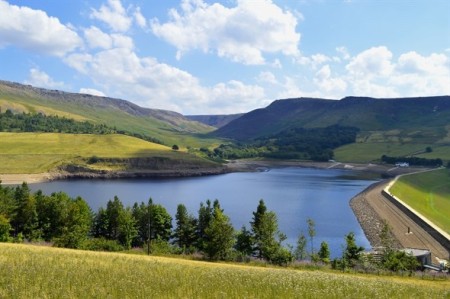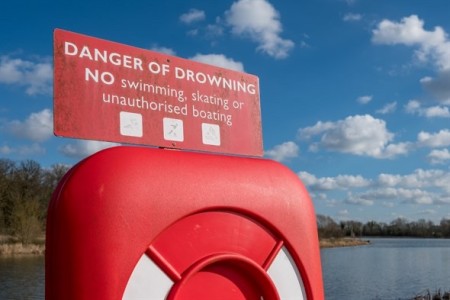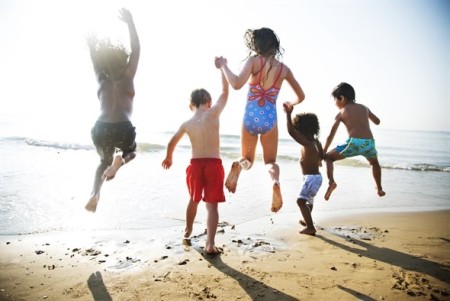The summer holidays are here!
We want every child to have an excellent summer holiday and we know how much you all deserve to see your friends in person.
However, whatever you get up to, please don’t let it include swimming in unsupervised open waters – such as lakes and reservoirs.
Reservoirs
A reservoir looks very similar to a lake but is nearly always man made.

It is a place to store very large quantities of water for many reasons - for flood control, to act as a water supply or as a source of hydroelectricity.
Reservoirs are very dangerous places to swim and the government advises against people taking a dip in a reservoir. Here's why:
- They tend to have very steep sides which makes them incredibly hard to get out of
- They can be very deep, with hidden machinery that can cause injuries
- The surface can look calm, but the current might be strong below due to pumps used to move water around
You can find yourself in trouble very quickly as you begin to experience what is known as cold water shock.
Around 85% of accidental drownings occur at open water sites and many of these drownings occur due to lack of knowledge and understanding of open water safety.
Accidental drowning claims the lives of around 402 UK and Irish citizens each year according to the Royal Life Saving Society (RNLI).

Don’t let the sunny weather fool you into believing that open water is warm and inviting, the average UK and Ireland water temperatures are around 12 degrees Celsius - cold water is water at a temperature of 15 degrees Celsius or below.
Cold water shock causes the blood vessels in the skin to close, which increases the resistance of blood flow. The heart rate also increases. As a result, the heart must work harder, and your blood pressure goes up.
Cold water shock can therefore cause heart attacks, even in the relatively young and healthy.
The sudden cooling of the skin by cold water also causes an involuntary gasp for breath. Breathing rates can change uncontrollably, sometimes increasing as much as ten times as frequently. All these responses contribute to a feeling of panic, increasing the chance of inhaling water directly into the lungs.
In a matter of minutes, you can drown and die. Don’t let your summer end before it’s even begun.
It is recommended that if you do want to swim in open water this summer, find an organised open water swim session that will be supervised by experts of open water. Swimming in the sea at the beach is also a safe option when these are supervised by lifeguards.

If you ever find yourself submerged in cold open water unexpectedly:
- Take a minute – the initial effects of cold water pass in less than a minute so don’t try to swim straight away.
- Relax and float – on your back in order to keep your face from being submerged in the water to allow you to catch your breath. Try to get hold of something that will help you float.
- Keep calm – call for help or swim to safety if you’re able.